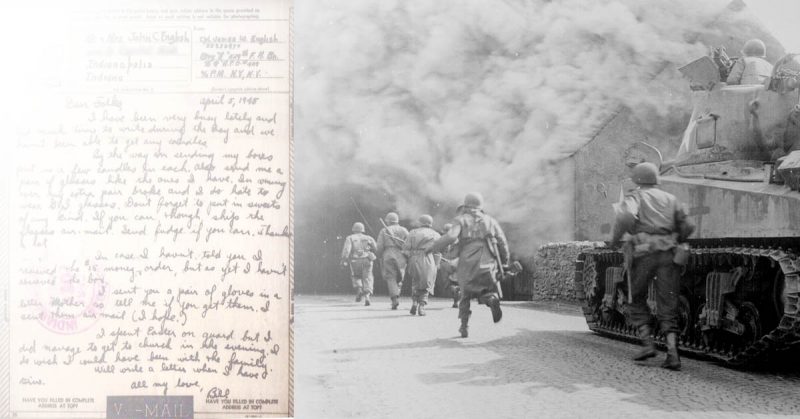American Second World War veteran Army Sergeant Donald Kimple had many stories he could’ve told based on his unique experiences as personal secretary to the adjutant general with the Supreme Headquarters Allied Expeditionary Force (SHAEF) in London, Paris, and Frankfurt. General Dwight D. Eisenhower was commander of SHAEF.
The letters he wrote, giving a personal view of some of the landmark events – such as the invasion of Normandy on D-Day, the freeing of Paris from German rule, and V-E Day in Europe – never saw the light of day, packed inside boxes in an Ohio basement. Kimple died at age 82 in Lakewood, Ohio.
His sons discovered the correspondence later. His son Bob, of Melbourne, Florida, has worked alongside archivists and curators at the National World War II Museum in New Orleans to save the letters, most still in their pristine envelopes with the original stamps intact. The complete collection includes approximately 120 types of letters, some handwritten and some typewritten, V-mails, and telegrams. There are also more than 40 photographs, other military items, and about 60 postcards.
That person kept a finished record of his service. What she really liked about the collection, said Lisa Werling, the museum’s processing archivist, are the booklets describing Camp Barkeley in Texas where he trained. People don’t retain that kind of material. To have that small glimpse into the time is very exceptional.
Each item will be categorized for use by the general public, educational programs, museum staffers, and researchers. Bob labored on the family archive plan alongside his older brothers John – who served on the USS Wasp as a submarine warfare technician – and Donald M. Kimple, a retired U.S. Coast Guard lieutenant commander.
Donald Kimple was admirably suited for his World War II duties. He knew shorthand, could take down 100 words per minute and type 70 words in the same amount of time. His letters started on August 23, 1943, with his Army enlistment in New Cumberland and ended in Paris December 13, 1945, with his final letter, USA Today reported.
Aware that censors checked the mail, he occasionally referred to his location as ‘somewhere in Germany’ or ‘somewhere in England.’
Bob said once he started going through the collectibles, opening envelopes and reading the material, he realized the historical significance. It is special to learn what his father did, and he is immensely proud of his father.
